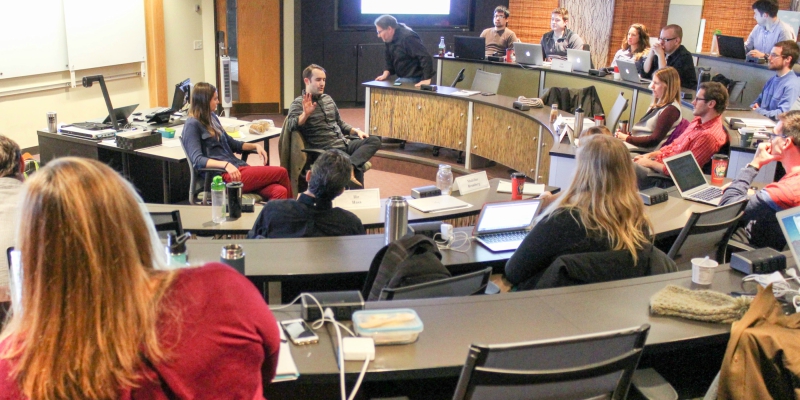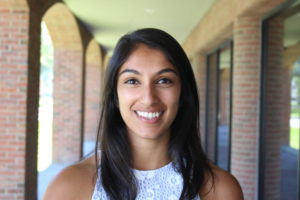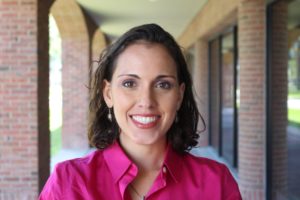Editor’s Note: The Sustainable Innovation MBA Class of 2019 arrived on campus this week for orientation, the beginning of an intensive year of learning, discovery, and shaping of their futures. The following message to the new cohort was written by Kevin Hoskins ’18, reflecting on his own orientation week, his class’s recent graduation, and everything in between.
It’s hard to believe it’s over. It all went by so fast.
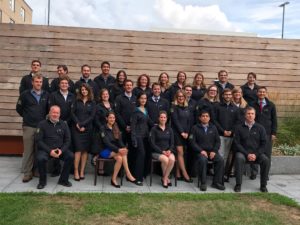 Last August, I packed up a van filled with my belonging and headed north, first on I-93 and then on I-89. I had come to Burlington to participate in a one-year, intensive MBA program. I had resisted graduate school and more formal education for a while, but something about this program spoke to me.
Last August, I packed up a van filled with my belonging and headed north, first on I-93 and then on I-89. I had come to Burlington to participate in a one-year, intensive MBA program. I had resisted graduate school and more formal education for a while, but something about this program spoke to me.
I soon found myself in a room surrounded by people that felt the same. We had come from different backgrounds, different work experiences, and from different areas of the country, a few from other nations.
What we soon found out is that we shared a similar feeling: that business-as-usual was no longer working and that it is time to transform and, if necessary, create businesses to respond to society’s challenges in a way that is more sustainable. That is, we need more market-based solutions to the challenges that face the world today.
“It all goes by so fast.”
In fact, it was a year ago today that I first met the other members of my cohort. They are, and remain, some of the most amazing people I’ve met. And I feel honored to have spent a year in a windowless room with them.
We began the year with a quintessential UVM activity: a trip to the university’s ropes course. In the first of many surreal moments this year, we also took turns looking at the solar eclipse that happened to be taking place that day. Then we played games to get to know each other, followed by other trust-building activities on the actual course. As I walked home that evening, reflecting on the experience and the first day of class, I remember thinking, “This is going to be a wild year. Enjoy the ride.”
We began the year studying business foundations: finance, strategy, brand marketing, and organizational behavior. We learned about the sustainability challenges facing the world. But soon enough, we found ourselves exploring topics that get at the heart of those challenges: strategic CSR, entrepreneurship, innovation, supply chain issues, public policy, and community development. And before we knew it, we were applying what we had learned in the classroom with businesses and organizations with real world challenges.
I tried to go into this year with no expectations for the experience. My initial goals were only to work as hard as I could and enjoy every minute of it. We know not if we’ll ever pass this way again…or something like that.
So, my advice, both to this next cohort and anyone that happens to be reading this, is to enjoy every minute of your time here. This is a once-in-a-lifetime experience. Soak up every moment of it. Take advantage of every opportunity. Enjoy the time you have with the people you’re lucky enough to share a room with. Learn from them. And approach it all with a growth mindset: your intelligence and talent got you here, but the world needs more people that also have a love of learning, that communicate effectively, that work well on a team, and that have the resilience to get across the finish line.
The time flies by. Before you know it, you’ll be saying goodbye and moving onto your next opportunity. And if you’re lucky, you’ll be sitting here a year from now being thankful for every single minute that you got to spend with some of your new favorite people. Enjoy the ride. It all goes by so fast.

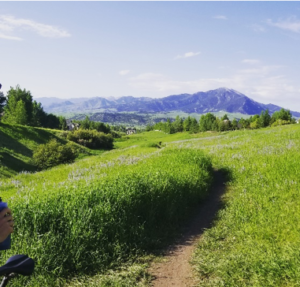 Since moving to the little city of Bozeman, Montana last fall, my increased focus on rock climbing, mountain biking (photo, left), canoeing and backpacking has brought me closer to the outdoor recreation community, a community that is at the heart of this place and many others like it. That said, I’ve felt strangely further away from my conservation roots. I devoured the article, nodding, admittedly a bit self-righteously, through all 3,000 words. Yes, yes! This is what I have been saying. Outdoor recreation does not solely predict one’s environmental attitudes! While the outdoor recreation industry is willing to make increasingly political statements about protecting our wild places, they’re yet to show they are willing to pay for that protection! And my sustainable business training rushed back: we don’t need to settle for trade-offs! Businesses can do well by doing good.
Since moving to the little city of Bozeman, Montana last fall, my increased focus on rock climbing, mountain biking (photo, left), canoeing and backpacking has brought me closer to the outdoor recreation community, a community that is at the heart of this place and many others like it. That said, I’ve felt strangely further away from my conservation roots. I devoured the article, nodding, admittedly a bit self-righteously, through all 3,000 words. Yes, yes! This is what I have been saying. Outdoor recreation does not solely predict one’s environmental attitudes! While the outdoor recreation industry is willing to make increasingly political statements about protecting our wild places, they’re yet to show they are willing to pay for that protection! And my sustainable business training rushed back: we don’t need to settle for trade-offs! Businesses can do well by doing good.
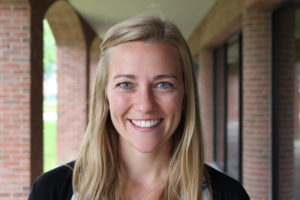 I work in NYC as an Associate Director at
I work in NYC as an Associate Director at 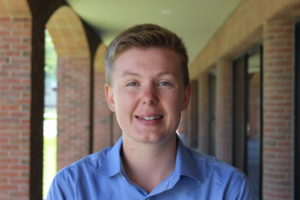 Making a whole new life for myself! I launched my own consulting practice, Third Peak Solutions, and spent much of the fall working from the road while my partner and I traveled around the west (Washington, Oregon, Montana, Wyoming, Colorado and New Mexico) figuring out a new place to call home. In November my partner landed a position at a very cool organization called Adventure Scientists and just after Thanksgiving we moved to Bozeman, Montana. After spending 30 years living in the Northeast, moving to big sky country is a pretty big life change. It’s somewhat terrifying, but mostly thrilling. Now that I’m settling into my new home, I’m focused on defining exactly what Third Peak Solutions does: organizational development consulting with conservation non-profits? Sustainable strategy consulting with for-profits? A little bit of both?
Making a whole new life for myself! I launched my own consulting practice, Third Peak Solutions, and spent much of the fall working from the road while my partner and I traveled around the west (Washington, Oregon, Montana, Wyoming, Colorado and New Mexico) figuring out a new place to call home. In November my partner landed a position at a very cool organization called Adventure Scientists and just after Thanksgiving we moved to Bozeman, Montana. After spending 30 years living in the Northeast, moving to big sky country is a pretty big life change. It’s somewhat terrifying, but mostly thrilling. Now that I’m settling into my new home, I’m focused on defining exactly what Third Peak Solutions does: organizational development consulting with conservation non-profits? Sustainable strategy consulting with for-profits? A little bit of both?
